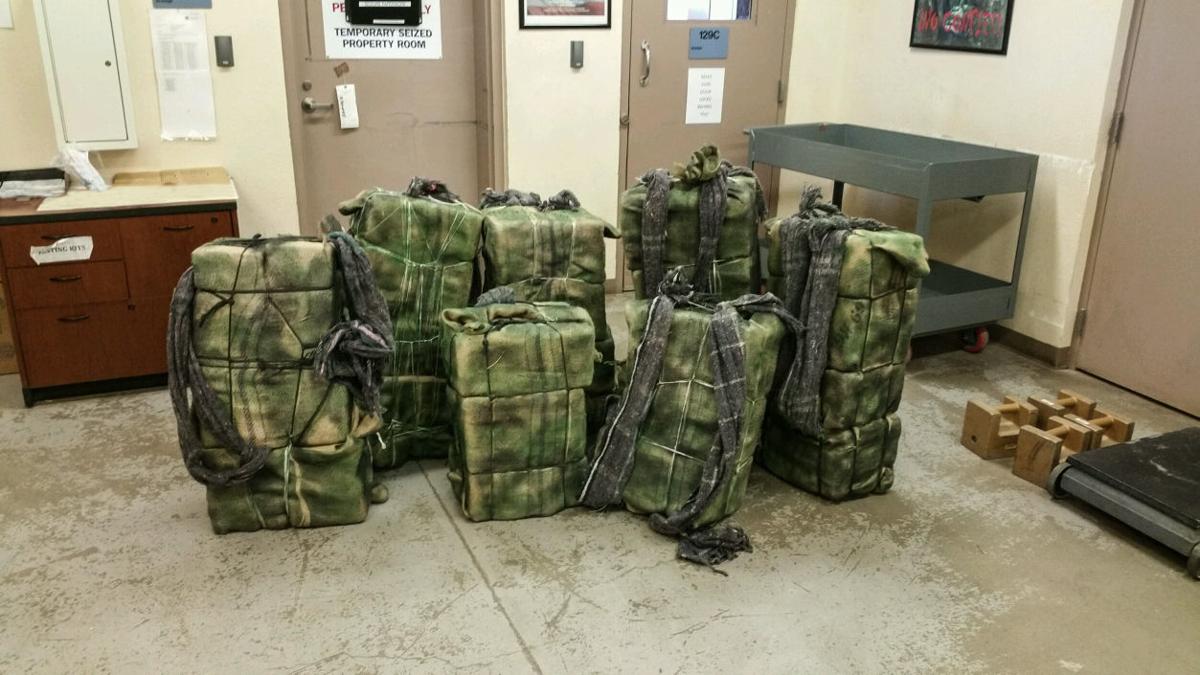For the first time in years, marijuana backpackers arrested in Southern Arizona can expect to face criminal charges not only for hauling pot, but also for crossing the U.S.-Mexico border illegally, according to the U.S. Attorney’s Office in Arizona.
The policy change targets several hundred people arrested each year in Southern Arizona for hauling bundles of marijuana across the border, many of whom agreed to do so instead of paying hefty fees to be smuggled into the United States. The impetus for the change, according to the U.S. Attorney’s Office, was the Department of Justice’s zero-tolerance policy for illegal border crossers announced by Attorney General Jeff Sessions in April.
Federal prosecutors notified federal public defenders and defense lawyers in Tucson of the new policy June 13, said Eric Rau, a supervisor at the Federal Public Defender’s Office in Tucson. It is unclear how many backpacker cases have been affected so far, he said.
The new policy revises the “flip-flop” plea agreements for marijuana backpackers and does not appear to focus on people caught smuggling hard drugs in vehicles at ports of entry or at Border Patrol checkpoints. The plea agreements are used to quickly resolve backpacker cases, which are needed due to the large volume of those cases. The agreements usually are filed within a week of the arrest and include a six-month prison sentence for marijuana possession.
The U.S. Attorney’s Office in Arizona is now requiring those plea agreements to also include a six-month prison sentence for a misdemeanor charge of crossing the border illegally, according to an email from a federal prosecutor obtained by the Arizona Daily Star from a defense lawyer who handles smuggling cases.
The prison sentence for crossing the border illegally will run at the same time as the sentence for marijuana smuggling, according to the email, meaning the length of a smuggler’s prison sentence will not increase due to the policy change.
However, a conviction for crossing the border illegally can be used to lengthen prison sentences after future convictions.
Cosme Lopez, a spokesman for the U.S. Attorney’s Office in Arizona, confirmed the new charging policy is part of the zero-tolerance policy announced by Sessions. He declined to comment when asked the value of charging someone with another crime, but not increasing the time they spend in prison.
The new policy focuses on flip-flop plea agreements, but a July 3 felony indictment of two backpackers included border-crossing charges, suggesting the new policy could extend beyond flip-flop agreements.
In April 2017, the Star reviewed court records for more than 110 backpackers caught smuggling drugs from late 2015 to early 2017. Those records showed nearly all of the backpackers faced only drug-smuggling charges, despite having crossed the border illegally.
Some backpackers are professional smugglers, court records show, while others arrive at the border as migrants and agree to haul marijuana to avoid paying thousands of dollars in smuggling fees.
A Border Patrol spokesman told the Star last year the agency does not keep statistics on migrants arrested for backpacking in lieu of paying a fee, but agents see those situations “on a daily basis.”





